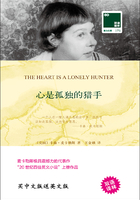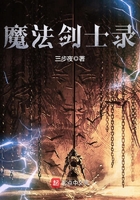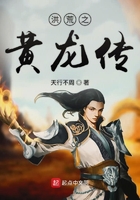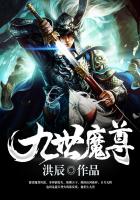For Chinese customers it is a completely different matter whether they may speak with someone from overseas who is dropping in during a one-week visit to China (and, if at all, maybe will show up again in a year or two) or with someone who is actually living in China, one who is able to tell of the weekend and the Chinese language lessons, is coming when needed and performing with professional competency. Even today, I notice that some new manager working for an old customer may react startled when looking into a Westerner’s face if my visit with a technician was not specially announced before. Foreigners are such a rare sight that it is always a spectacular affair (and one to be avoided where possible and where not, to be shoved across the desk to another manager). Only after learning that I have for years before been coming and going at this customer’s office and realising that this is neither my first nor my last visit, this new manager will get warmer.
In the past I was told, Chinese are unreliable with regard to keeping appointment. Both my sales director and my sales manager told me that more than half of the appointments had not taken place because of late cancellations: “Such insolence, with such customers we don’t want to have business!”
Yes, it is true: even today, sometimes more than half of my own already agreed-upon appointments are “cancelled” – but not for dropping them but for moving them! And if “we” were not available for more than a few days, where should the appointment be rescheduled to? For me it is not a problem, we always find a new date, I put about dates as a tiler may lie tiles in a complicated pattern, until everything fits.
The Chinese are not doing otherwise, there are no differences between the different cultural backgrounds, whether mainland, HongKong, or Taiwan Chinese: their attitude is similar in this respect: If the appointment is important and of help for the customer, it takes place, if useless, it is not agreed in advance at all; if an important agreed appointment is cancelled, then in order to move it to a different date, because something else intervened.
And that is precisely the only thing that distinguishes them from customers in the West: In the local market and for each customer, not only for our suppliers but everywhere, an extreme stress is prevailing, exceeding extreme pressure. Our customers first have to serve their customers: If suddenly a manager of that customer from ShangHai, HongKong, the U.S. or Germany shows up (scheduled for Monday, but because of another appointment moved to Wednesday, exactly to that Wednesday when my appointment was scheduled), then the supplier from Germany will be moved, not cancelled. If the German has no time then, that’s his problem. But I do have time, I am the tiler jigsawing my tiles.
I quickly learned that a market growth of 20 % per year cannot be managed with rigid planning, and our Chinese customers have to be extremely flexible, so do I.
Often this may deteriorate to unhealthy stress, but this has to be dealt with. You must even learn to like it. Those who fail are lost and will not be successful. There is no meeting during which there is not all the time buzzing, ringing or playing some participant’s phone, the call is usually answered. And regularly, the very person is called who has just asked a question, and the call arrives just as I answer. It is very difficult to keep calm then, but I have to, and after the phone call I continue right where I left, but repeat a few sentences from before.
With time, our customers are getting aware that I am “always” or almost always, present and available, even late in the evening and at night I can discuss a problem; I am flexible enough to return the next day or the next week if the problem was not solved. They understand that my technical statements are reliable, as are our processes, as long as our predefined parameters are met, that the recommendations by me and our technicians, both German and Chinese, are helpful and to the mark. They notice that by and by I learn to speak some Chinese, and they gradually develop
TRUST.
This trust is not fugitive, greasy, acquired on common passes through pubs or brothels or even by bribery, it is real, stable, gained with technical and personal reliability of the kind that the Chinese are accustomed to and demanding from each other, whether mainland, HongKong or Taiwan.
A key element of that trust is the recognition: “This German has stamina, he cannot be shaken off, not put off.” The Chinese have a term for it: 吃苦耐劳 chī k. nài láo (the accents indicate the emphasis on the syllables), meaning: “eat (something) bitter and withstand hard work”. That’s what I can do.
The Chinese have thousands, if not tens of thousands, of proverbs for all situations. Two of them very clearly characterise their relationship to the development of trust: 路遥知马力 and日久见人心; in phonetics, they are written as: lú yáo zhī m. lì, which is almost literally, “(Only) after a long haul you will know the strength of the horse” and the second is: rì ji. jiàn rén xīn, “(Only) with time you get to know a man’s heart”. This caution to develop trust only after a long period is part of Chinese culture.
Based on my experience, I also disagree about the “cronyism” that is regarded as a characteristic of China, often referred to in books and articles. I believe that China (at least where I can tell that) is not primarily operated on what we describe as “cronyism”. That would be: The relative, neighbour, friend who is closest to me is preferred, regardless of performance. (I don’t deny that this does exist in China, and I do not know to how much extent. And no doubt there is a large amount of corruption in China, just: We are not involved in this “market”.)
I can only describe what I perceive: From our environment we shall select those for a business, a job position, supply or partnership who are reliable, those in which we have TRUST. These are not the closest cronies but those friends and acquaintances, or their friends and acquaintances, who are competent to the task, and on which you can absolutely rely.














